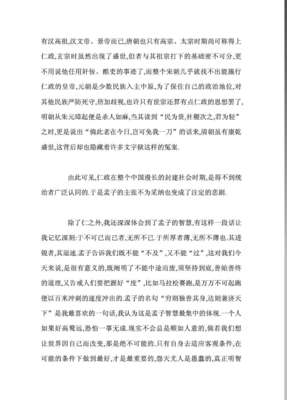
《All Quiet on the Western Front》是一本由Erich Maria Remarque / 雷马克著作,Ballantine Books出版的paperback图书,本书定价:USD 6.99,页数:304,特精心从网络上整理的一些读者的读后感,希望对大家能有帮助。
《All Quiet on the Western Front》精选点评:
●抓鹅,殴打长官(postman为什么会是长官?),还有和姑娘约会,以及医院中为了一对夫妻啪啪啪而在门口守着预防护士进来,有美好,但战争只是为了某些人的利益而打,双方的士兵并不认识对方,甚至所谓的敌人也是和自己一样有妻子儿女,有恐惧有快乐的人,双方无冤无仇。伤残,恐惧,死亡就是战场上的主题曲。最后的最后,西线无战事。
●战争的肮脏摧毁爱国主义
●早知原文是德文,应该直接看中译本的,不过英译也不错。
●第一次尝试阅读英文原版小说
●德国一战士兵的真实记叙
●虽然我有点不懂英语,但还是把我从学校里借来的书给读完了: 小说大部分是不包括打仗,而是这士兵的生活:住在战壕,每天提心吊胆地躲子弹,不足够的医疗服务和差劲的食物!看的我也.........
●Great!!! Took almost 120 notes in the book. The descriptions were so nice and adhered to the war. The end was suddenly, but still had another kind of meaning. End in 2012.3.22
●德语狗本科毕业论文要写这本书,这回看看英文版的纯当考研之前练英语了...
●整体感觉还行吧。这部小说红在价值观,发表的时候反战思维还没有遍布整个社会。然而不是很独特的一个故事,里面有对人性的刻画,不过也就那么回事。
●european history必读书目一晚读完还有6页paper现在写的想死。。。而且看的我心里好难受
《All Quiet on the Western Front》读后感(一):挺二的一本
非常痛苦的在坚持看这本书 40%靠自己想象 生词好多 都懒得查了 但是隐隐还是感觉 这本英译版的还是很好看的 书买了两年了 一直都没有翻过 散发出一种很重的霉味 倒也符合小说中场景 我没有阅读战争小说的经历 这次艰苦的阅读让我对这些东西萌生了不少兴趣
《All Quiet on the Western Front》读后感(二):出路是没有的
正如叙事者所想,战争无可言说。本书力求克制,用年轻老兵的轻松调侃刻意淡化战争的残酷。部分心理描述混乱,重复。
这是一代被抽离的人,似乎战死沙场才是最好的归宿。上一代的老兵在战争结束后还能恢复旧生活,战争的回忆被社会迅速粉碎,下一代根本来不及接触和理解。只有他们,20岁的老兵,曾经的文学青年数学天才,家里蝴蝶标本还订着他们柔软的心。
他们是移动着的战争的伤痕。他们活着,就在时时刻刻提醒着人们,他们的祖国进行过一场不光彩的战争。人们拒绝回忆,拒绝相信,他们诅咒这些年轻的老兵。无数只胳膊胡乱飞舞,把他们打倒,剁碎,掩埋起来。只发生一次的事情就没有发生。
新闻是一个悖论,发生,冒泡,迅速破碎,来不及记录。记录也毫无意义。《不能承受生命之轻》里报社拒收特丽莎战争题材的照片。已经过去了,他们解释。纵然战争结束不过几个月,它就因令人难以承受的压抑被抛弃了。
我们否认沉重,随之而来的就是轻盈吗?重的对立面真的是轻,或者说,否认了重,我们就真的能得到轻吗?
这些士兵死了无数次。战场上,理想、人性、激情全都随着幻想的破灭分崩离析。他们旧的自我,那在象牙塔中培养的纤细温柔的性格,在上一代老兵的冷酷欺凌中丧失信仰;在漫天飞舞的炮火(bombardment, shell, barrage...)中炸得血肉模糊;被触不可及的人群和明日世界无情地割裂。他们无处可去。他们活着,如同死去,只有不被铭记的回忆把他们拥入怀中。
被同情,被拒绝;
被赞颂,被忽略;
被记录,被遗忘。
他们被困于过去。
我们觉得安心。
出路是没有的。
《All Quiet on the Western Front》读后感(三):Problems of the teller and the listener
asically the structure of this novel compared to its film adaptation raises a question of reception. In other words, like the author mentions in the perface, it's not an adventure, but a lost of a generation who faced to war.The gap between the author and the reader is not just different experience, but is how the author tell his own experience after going through war, being in a traumatic situation.
Obviously the novel is not based on chronological order, the storyline are fragmentary, some said it matchs with author's experience. It is reasonable that when author tries to pick up his memory to write a story, all he can do is to write down his flashback in his brain. But for me, author also use another technique. He extends the time in the novel, every spot he writes down, batterfield, chatting with soldiers,etc, he extend the time and accommodate his own thoughts. This is psychological realism. When he faces something horror, he feels that the time goes so slow! So the narrative and experience match with each other. This is why his experience seeks to this kind of narrative.
We need to make sure that the problem in the novel is not two sides of soldiers, but the generation and their normal lives. The key theme is the alienation and isolation of a lost generation. After Paul, the character, goes back home, he doesn't know how to communicate with his friends, family, teachers, he feels like his home disappear, or say, he changes because of war. A generation who are forced to follow the army, farewell to their past, and not ready to fit into the present and future, that is what the novel tries to tell.
The gap in terms of the story, or the trauma of a generation, matchs with the technique of story telling. Experience is what the author actually been through, or maybe not. Did he turn his head away from some sacry scene as well? We can't tell. Compared to the narrative, experience can be catagolued as a part of his thoughts and memory, and telling a war story, is like a continuing part of recovering trauma. The author's experience is natural, and it is the truth, but narrative has a target, has audiences. When the author writes down something, he knows his intention, and this intention distorts what happened.
o that is the gap, how can you tell a true war story? War literature is an abstract of life, a product of art.